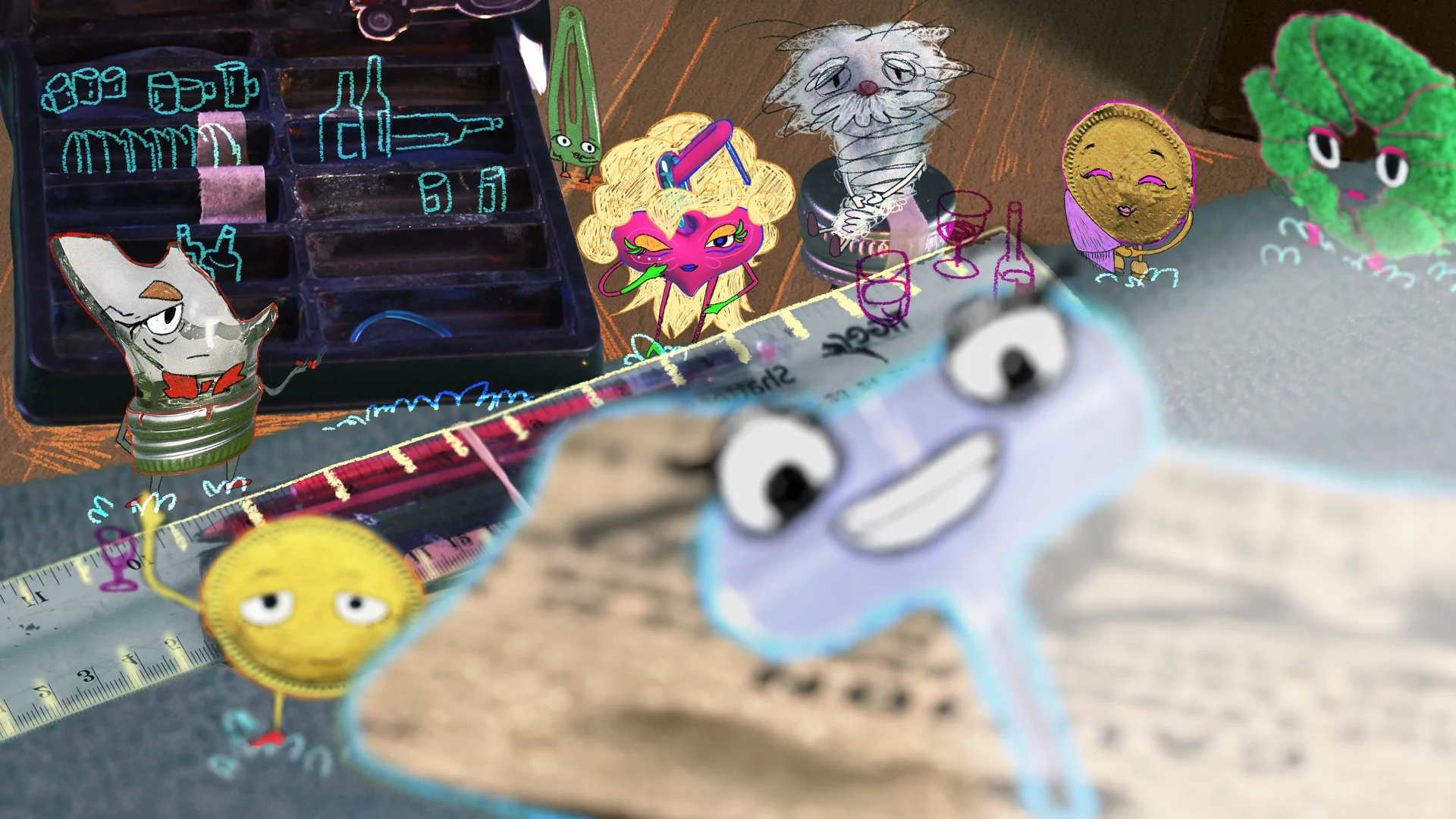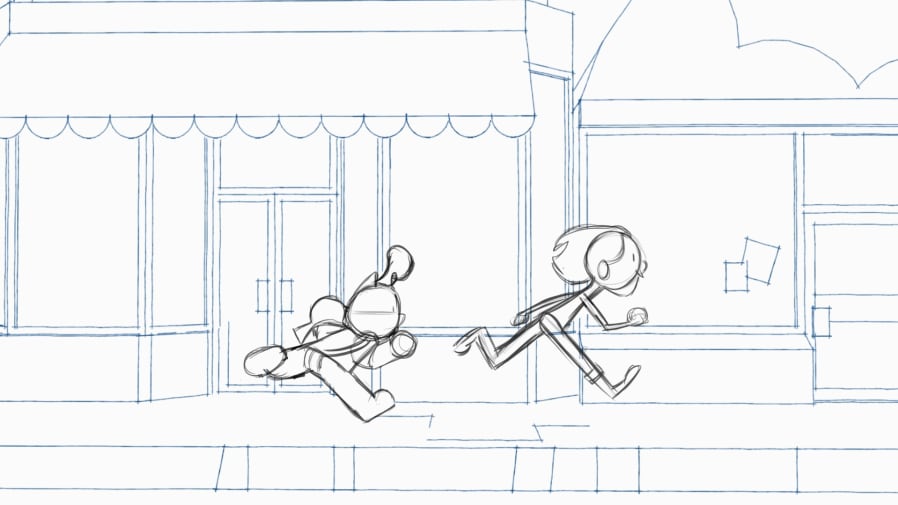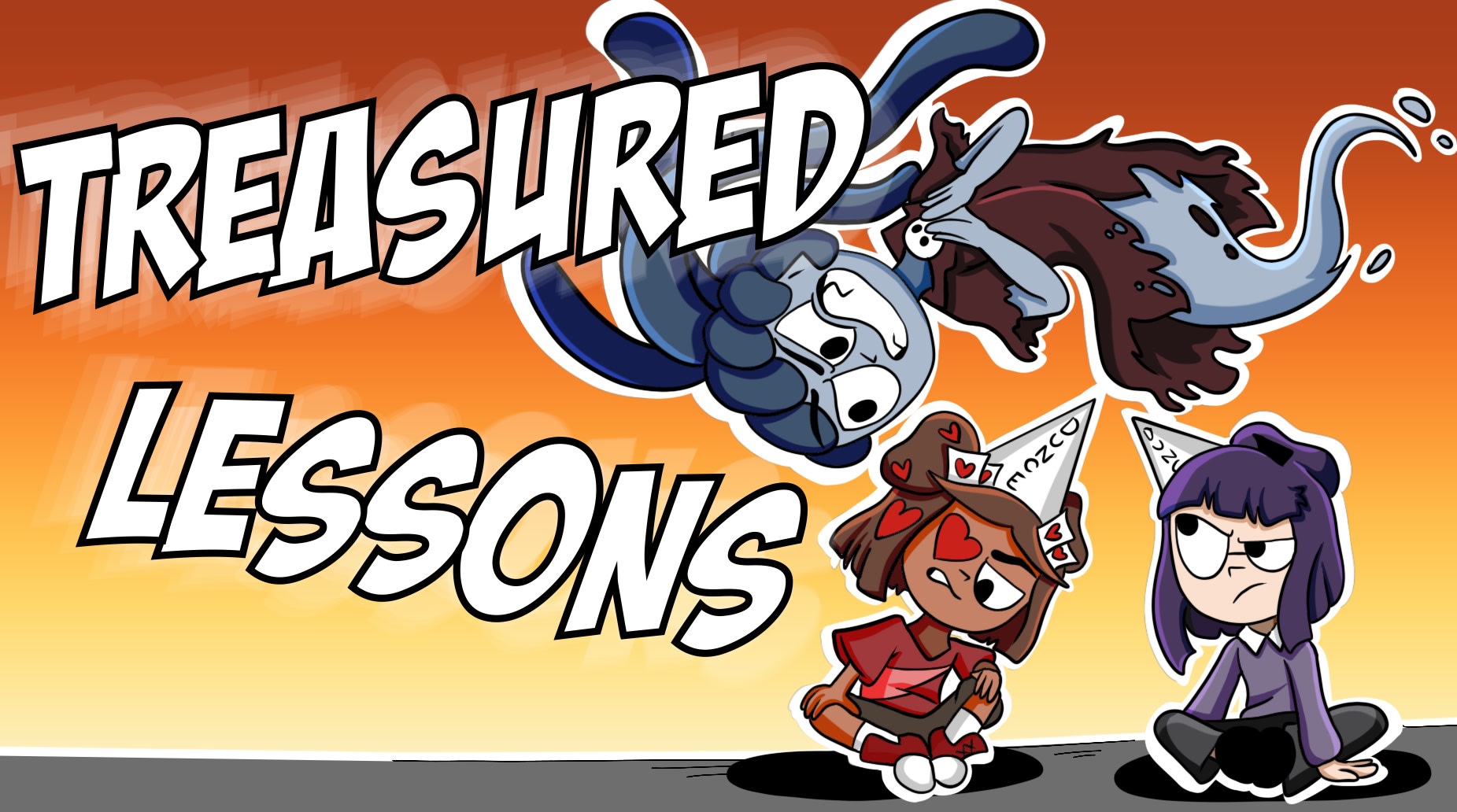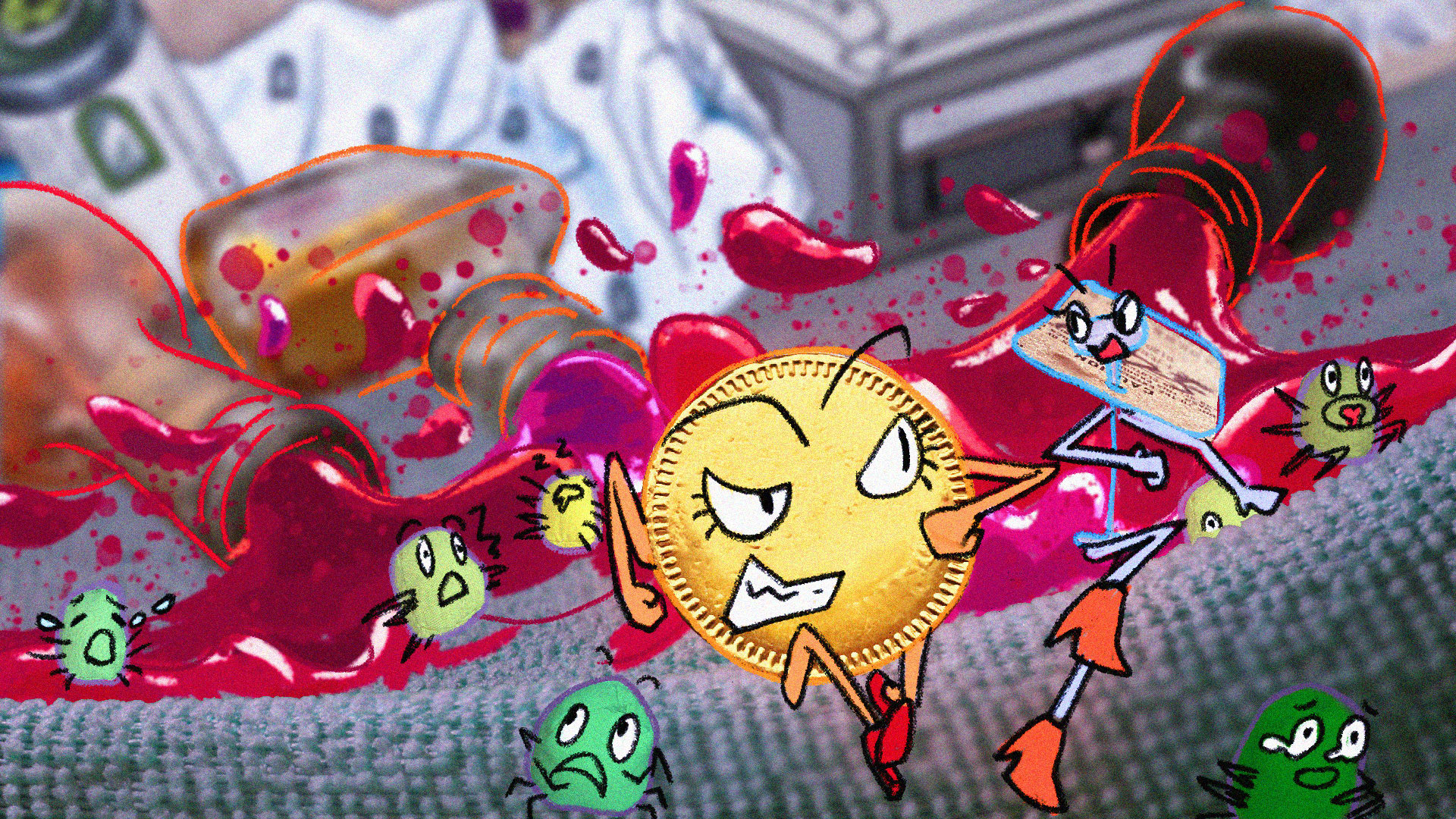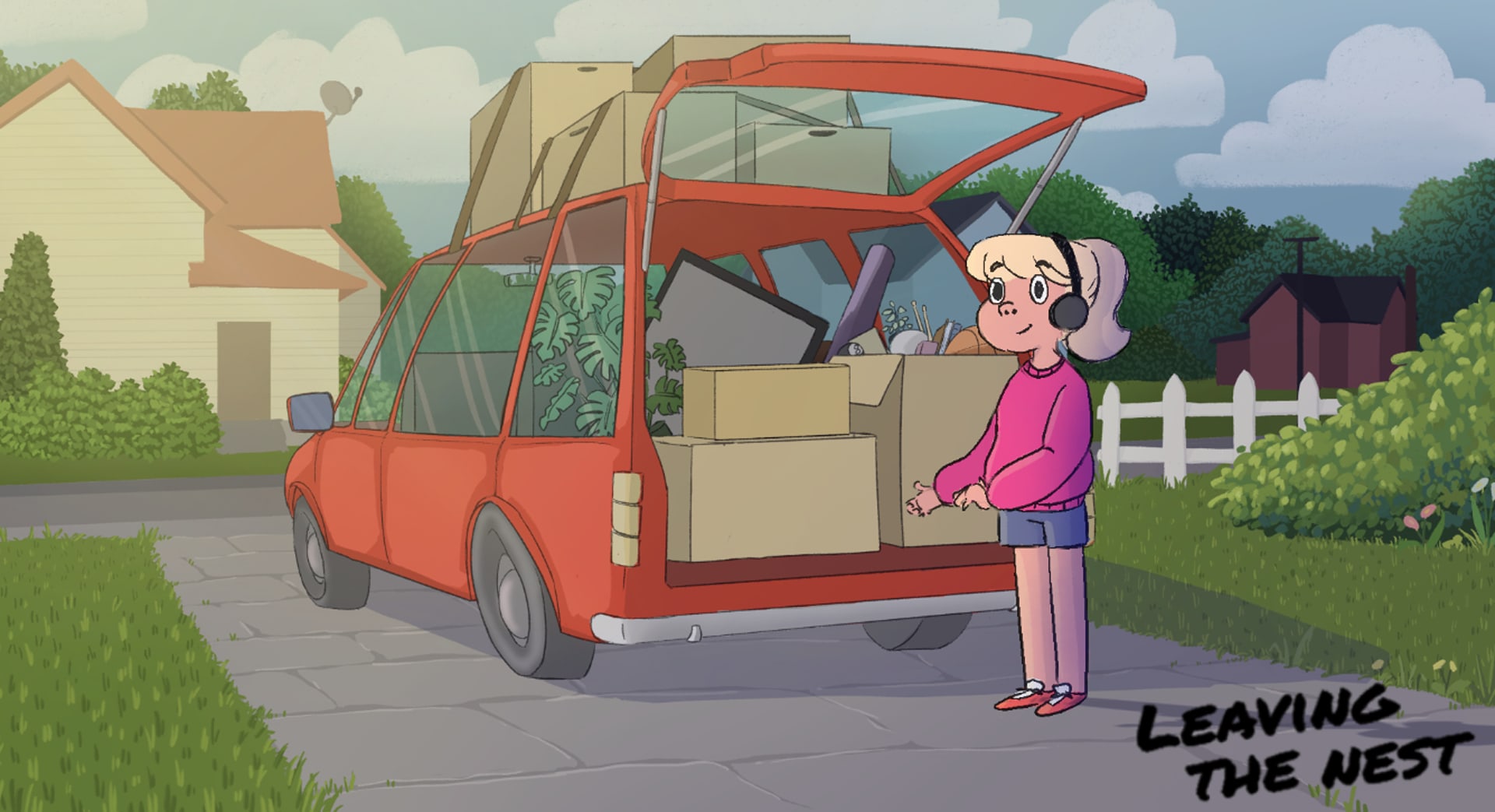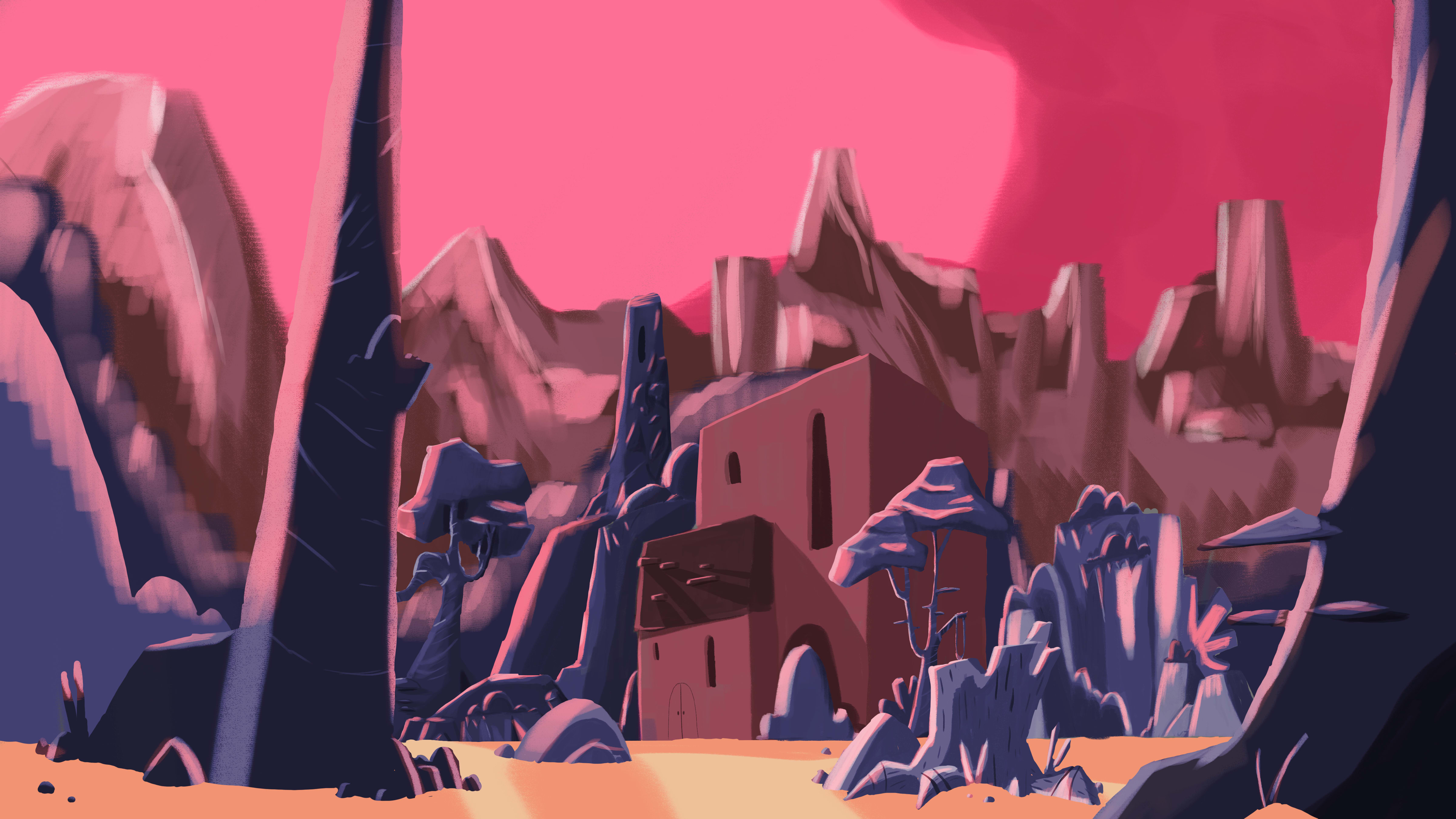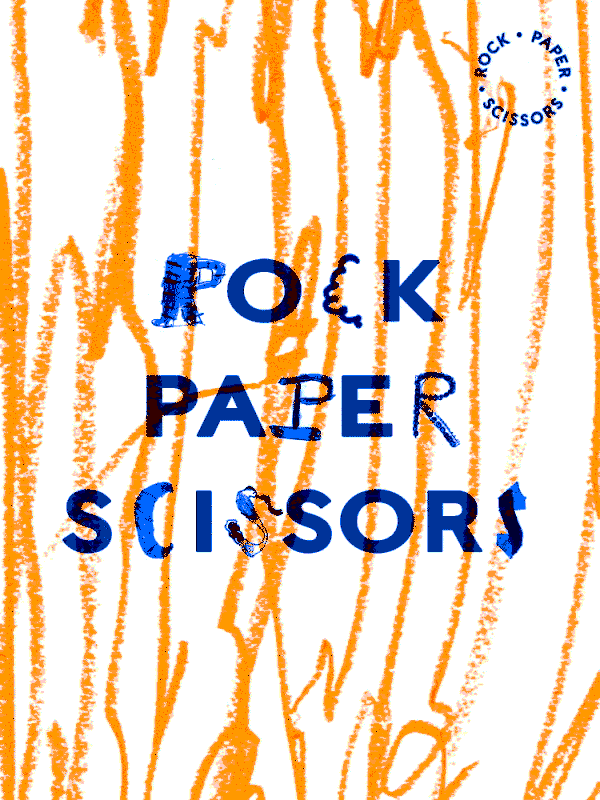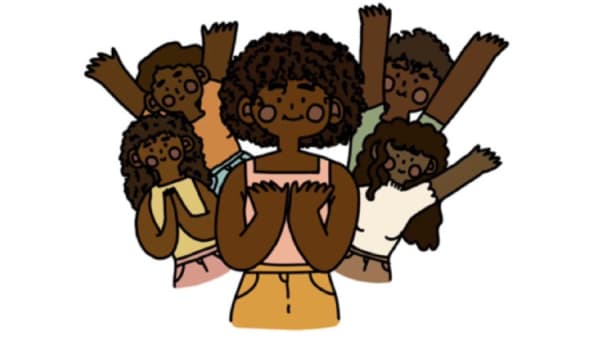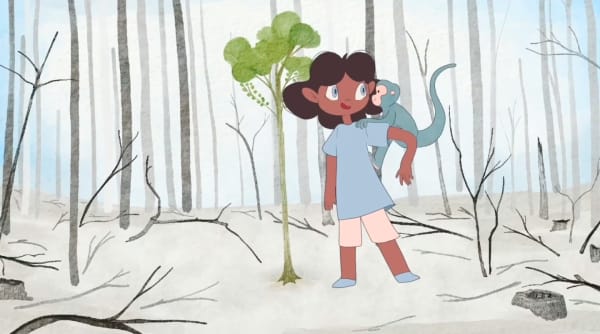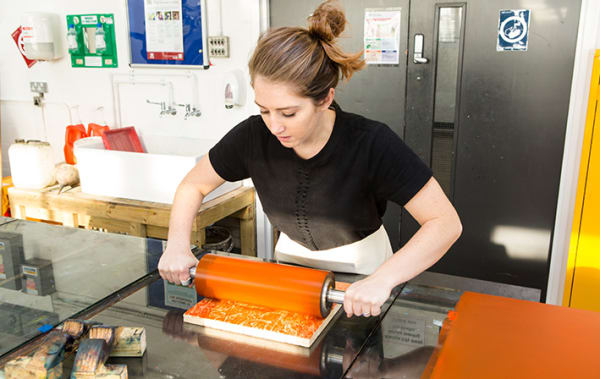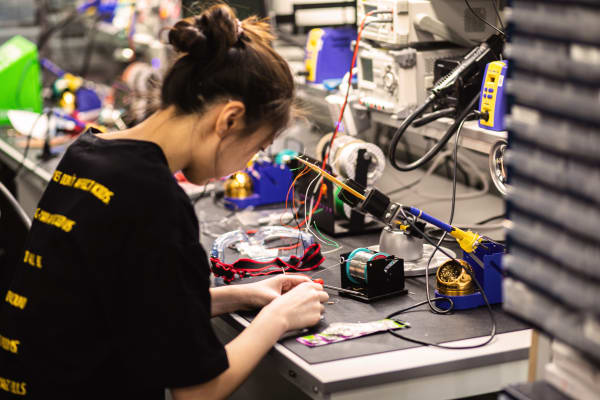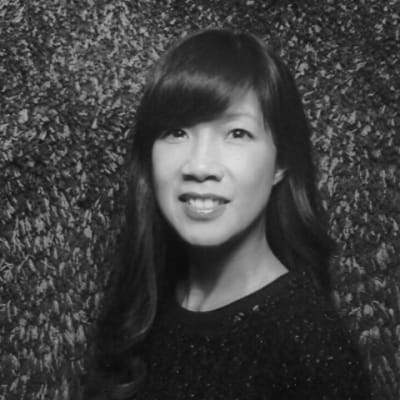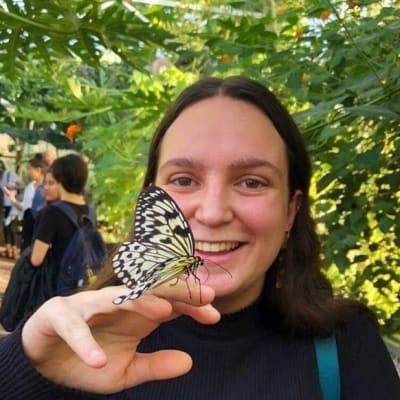Course units
In response to the Climate Emergency, UAL has embedded responsible practices within the curriculum. We shaped our courses around principles of social and racial justice, and environmental sustainability that ensure learning outcomes reflect the urgent need to equip you with the understanding, skills, and values for ethical practice and empower you to work towards an equitable future.
In common with all courses at University of the Arts London, this course is credit rated. The course is 3 years, levels 4-6. Each year requires you to achieve 120 credit points. To be awarded the BA (Hons) Animation qualification, you need to accumulate a total of 360 credits.
Year 1
All students take the same units in Year 1, although the projects will vary in the Visual Narrative unit focusing their proposed pathway specialism.
Introduction to Animation (20 credits)
With a focus on theoretical, critical and practical skills development, you’ll be introduced to the course and its subject specialism, as well as effective learning at undergraduate level.
Production Principles (40 credits)
This unit introduces you to the fundamental terminology, technology and craft skills that underpin all areas of animation across all pathways. You’ll work in 2D drawn animation (analogue and digital), 3D computer animation, and Visual Effects. The unit covers a range of key production areas including the principles of animation, observational drawing, design for animation, character design, storytelling, creative writing, sound and performance, and focuses on short projects developed through skills-based workshops.
Visual Narrative (40 credits)
An extension of Production Principles, this unit will provide a deeper understanding of how narrative is constructed visually. You’ll attend workshops aligned to the 4 pathway options and have the opportunity to select your preferred area of specialism.
Informed Practice 1 (20 credits)
You’ll be introduced to histories, theories and debates in relation to animation and visual and material culture. Focusing on the development of creative ideas, you’ll explore the common themes and relationships between theory and culture. You will explore a broad knowledge base around contemporary discussions in relation to sustainability, social justice, inclusivity and ethics in animation.
Year 2
Both pathways will follow the same unit structure to enable collaboration across the pathways, however the content and delivery will be differentiated to reflect the specialisms.
Pathway Units – Principles (40 Credits)
Building on Year 1, you’ll advance your learning through the technical and practical skills of your specialism.
- Principles of Experimental: If you follow the Experimental pathway, you’ll experiment with design, technique, content and format and have opportunities to explore a range of areas beyond conventional formats such as performance, installation, interactive, projection mapping, short film or documentary.
- Principles of Character: If you follow the Character Pathway then you’ll focus on developing your understanding of the fundamentals of animation such as character design, storyboarding, storytelling and creative writing.
Professional Practices (20 credits)
Focusing on work-based learning, this unit will help you to consider your future career goals and the steps you need to take to achieve them. You’ll also be introduced to essential tools for professional presentation through tutorials and workshops. If you’re interested in applying for the Diploma in Professional Studies, we’ll support you through the application process.
Exploratory Practice: Experimental/ Character (40 Credits)
Whichever pathway you take, you’ll explore the application of your skills through a selection of longer form projects. At this level, you’ll be encouraged to enquire about your own personal and unique approach to your subject area.
Technical skills workshops will continue on all pathways, these include:
- Experimental: After Effects and other Adobe Suite software, Resolume, production design, puppet-making, and lighting and cinematography for stop-motion.
- Character: Toon Boom Harmony, Storyboard Pro, After Effects and other Adobe Suite software, performance for animation, lip synch, and the animation production pipeline.
Informed Practice 2 (20 credits)
Following on from Informed Practice 1, this unit is a shared unit across all pathways and will expand upon histories, theories and debates in relation to animation, games, visual effects and visual and material culture. Continuing to focus on the development of creative ideas, you’ll explore the common themes and relationships between theory and culture and your place within it.
Year 3 – (Year 4 for students returning from an additional Diploma year)
All pathways will follow the same unit structure to provide the opportunity for collaboration across the pathways; however, the content and delivery will be differentiated to reflect the specialisms.
Final Major Project: Experimental/ Character (60 credits)
The Final Major Project is a collaborative project that will allow you to make a significant contribution to a major project in a specialist role within a small production team. Working with a carefully formed team based on your interests and specialisms, this is an opportunity for you to demonstrate the skills you've developed over the course.
Professional Futures (40 credits)
This unit builds on the experiences gained through Year 2 Professional Practices. There’s a focus on tailoring skills towards a specific role within the industry, and on developing professional methods and tools of presentation such as CV and personal website. The unit will contribute towards your portfolio of work. This experience will give you the opportunity to make introductions to contacts in the animation and creative industries.
Informed Practice 3 (20 credits)
This unit is a culmination of the ‘Informed Practice’ component of the course. The subject of your work will be based on a written proposal and research produced at the end of the second year, and can be directly linked to other Year 3 units.
Optional Diploma between Years 2 and 3
Between Years 2 and 3 of the course, you’ll also have the opportunity to undertake one of the following additional UAL qualifications:
Diploma in Professional Studies (DPS) (Optional)
An optional, year-long learning opportunity which enables you to develop your professional skills by undertaking time out for industry experience. Supported throughout the year by academics, you’ll build on the knowledge gained on your course in a range of national or international locations, and graduate with an additional qualification of Diploma in Professional Studies.
Diploma in Creative Computing (Optional)
Between Years 2 and 3, you can undertake the year-long Diploma in Creative Computing. This will develop your skills in creative computing alongside your degree. After successfully completing the diploma and your undergraduate degree, you’ll graduate with an enhanced degree: BA (Hons) Animation (with Creative Computing).
